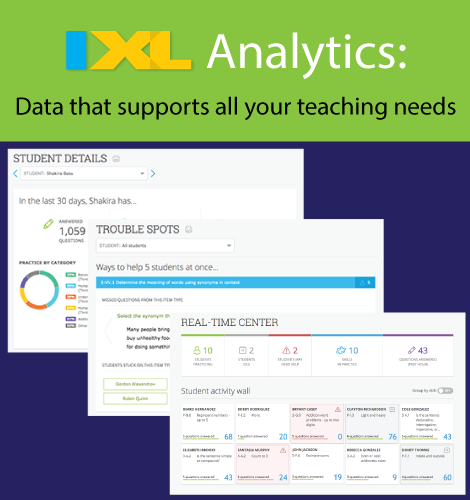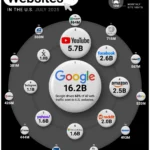The Data Deluge: Why Modern Marketers Need More Than Intuition
In the bustling, ever-evolving landscape of digital marketing, “intuition” is quickly becoming a relic of the past. Today, success hinges on something far more tangible: data. From refining customer journeys to optimizing ad spend, every strategic decision, every successful campaign, is underpinned by robust data analytics. Yet, for many seasoned marketers and newcomers alike, the sheer volume and complexity of data can feel overwhelming, a dense jungle requiring specialized tools and skills to navigate.
The challenge isn’t just collecting data; it’s about understanding, interpreting, and acting upon it to drive measurable business outcomes. Marketers are increasingly expected to not just craft compelling narratives but to also be adept at web analytics, deciphering social media analytics, predicting customer lifetime value, and even understanding the basics of machine learning for personalized campaigns. This isn’t just a desirable skill; it’s an essential competency for anyone looking to stay competitive in the digital arena. Many are turning to online learning courses and online learning platforms to bridge this knowledge gap, but traditional methods often fall short in maintaining engagement and practical application.
This brings us to a revolutionary concept: what if learning complex data analytics could be as engaging and addictive as a video game? What if there was an “IXL for Adults” that transformed dry statistics and algorithms into an interactive, rewarding experience? Welcome to the world of gamified learning, a powerful approach poised to redefine how marketers master data analytics.
Beyond Textbooks: Understanding Gamified Learning for Professional Development
When you hear “gamified learning,” you might first think of educational apps for children, perhaps even recall your own experiences with platforms like IXL learning. These platforms leverage game mechanics – points, badges, leaderboards, immediate feedback, and progressive challenges – to make learning fun and effective. The core idea is to tap into intrinsic human motivators: achievement, competition, collaboration, and mastery.
But gamification isn’t just for kids. For adults, especially professionals seeking to upgrade their skills, it offers a potent antidote to the common pitfalls of traditional online education learning or self-directed study: boredom, lack of motivation, and difficulty in retaining complex information.
What is Gamified Learning?
At its heart, gamified learning integrates elements typically found in games into non-game contexts. For professional development, this means transforming learning objectives into engaging challenges. It’s not about turning education into a full-blown video game, but rather about strategically applying game design principles to enhance the learning experience.
Key components often include:
- Points and Rewards: Accumulating points for completing modules, solving problems, or demonstrating mastery, often redeemable for virtual rewards or recognition.
- Badges and Certificates: Visual markers of achievement that signify competence in specific areas, providing a sense of progress and accomplishment. Many online learning platforms now offer digital badges for skill mastery.
- Leaderboards: Fostering healthy competition among learners, motivating them to strive for higher performance.
- Progress Tracking: Clear visual indicators of how far a learner has come and what lies ahead, reducing feelings of being overwhelmed.
- Immediate Feedback: Unlike traditional exams, gamified modules often provide instant feedback, allowing learners to correct mistakes and understand concepts more quickly.
- Narrative and Storytelling: Embedding learning within a compelling story or scenario, making it more relatable and memorable.
- Challenges and Quests: Structuring learning into distinct missions or tasks that require problem-solving and application of knowledge.
Why Gamification Resonates with Adult Learners
Adult learners, unlike children, come with established habits, career demands, and often, a healthy skepticism towards new learning methodologies. They need learning to be:
- Relevant: Directly applicable to their professional goals and challenges.
- Efficient: Respectful of their limited time, offering clear paths to skill acquisition.
- Engaging: Motivating enough to overcome the inertia of busy schedules.
- Practical: Providing opportunities to apply knowledge in realistic scenarios.
Gamified learning ticks all these boxes. It transforms the abstract into the concrete, the tedious into the tantalizing. Instead of passive consumption of information, it demands active participation, fostering deeper understanding and better retention. This approach is particularly effective for complex, technical subjects like data analytics, where hands-on practice is paramount. Many are now discovering the benefits of online learning when delivered through such engaging methods.
The “IXL for Adults” Vision: Gamifying Data Analytics Mastery for Marketers
Imagine a platform tailored specifically for marketers, mimicking the adaptive, rewarding, and challenging structure of IXL learning but focused on the intricacies of data analytics. This isn’t just about quizzes; it’s about interactive simulations, real-world case studies, and progressive skill trees that unlock new analytical capabilities.
Bridging the Gap: From K-12 to Enterprise Skill Development
The success of platforms like IXL in K-12 education lies in their ability to:
- Identify specific knowledge gaps: Through diagnostic assessments.
- Provide targeted practice: With thousands of varied problems.
- Offer immediate, helpful feedback: Guiding students toward correct answers.
- Track progress systematically: Allowing both learners and educators to see growth.
- Motivate through small wins: And a clear path to mastery.
Translating this model to adult data analytics learning means creating a system where:
- Diagnostic Assessments: Marketers begin with an assessment to pinpoint their current data analytics proficiency, identifying areas for growth in marketing analytics, SEO data analysis, or campaign performance analysis.
- Personalized Learning Paths: Based on their assessment and career goals, the platform suggests a customized “skill tree” or “learning quest.” Want to master predictive analytics for customer churn? There’s a path for that. Need to improve your Google Analytics reporting? Another path awaits.
- Interactive Modules & Simulations: Instead of static lectures, learners engage with interactive dashboards, simulated data sets, and challenge scenarios. They might be tasked with identifying key customer segments from a large dataset, optimizing an ad campaign budget based on ROI metrics, or interpreting A/B test results.
- Real-world Scenarios: The learning isn’t theoretical. Marketers tackle challenges mirroring actual business problems, such as “Boost e-commerce conversion rates by 15% using website behavioral data” or “Identify the most effective channel for new customer acquisition.”
- Adaptive Difficulty: Just like IXL adjusts to a child’s learning pace, an adult version would dynamically increase the complexity of data challenges as the marketer gains proficiency, ensuring they’re always stretched but never overwhelmed.
- Instant Feedback & Guided Solutions: Make a wrong turn in your data analysis? The system immediately highlights the error, explains why it’s wrong, and guides you towards the correct methodology, perhaps even linking to relevant resources on online learning platforms or detailed explanations of statistical concepts.
- Progress Tracking & Milestone Achievements: Visual dashboards showcase mastery of specific tools (e.g., advanced Excel functions, basic SQL queries, dashboard creation in Tableau/Power BI), concepts (e.g., statistical significance, regression analysis), and strategic applications (e.g., customer segmentation, ROI optimization). Badges like “Analytics Explorer,” “Conversion Catalyst,” or “Predictive Pro” would celebrate each milestone.
- Collaborative Challenges & Leaderboards: Optional features could include team challenges where marketers collaborate to solve complex data puzzles, or leaderboards that showcase top performers in specific analytical skills, fostering healthy competition and peer learning.
This “IXL for Adults” concept transforms the daunting task of mastering data analytics into an engaging, progressive, and highly effective journey. It’s about making learning an active, iterative process, providing immediate gratification and a clear sense of accomplishment.
The Indispensable Role of Data Analytics for Today’s Marketer

Before diving deeper into how gamification helps, let’s re-emphasize why data analytics is non-negotiable for modern marketers. The market dynamics demand it.
Data as the New Currency
In today’s hyper-connected world, every click, every scroll, every purchase leaves a digital footprint. This data is invaluable. Marketers who can harness it gain a profound competitive edge. They can:
- Personalize Experiences: Deliver highly relevant content and offers, moving beyond generic messaging to genuine one-to-one communication. This directly impacts engagement and conversion rates.
- Optimize Ad Spend: Precisely target audiences, allocate budgets to the most effective channels, and eliminate waste. This is crucial for maximizing marketing ROI.
- Understand Customer Behavior: Gain deep insights into what customers want, how they interact with brands, and why they make purchasing decisions. This feeds directly into product development and service improvement.
- Measure Campaign Effectiveness: Move beyond vanity metrics to truly understand the impact of marketing efforts on business objectives.
- Predict Future Trends: Leverage predictive analytics and even simple machine learning models to forecast demand, identify emerging opportunities, and anticipate customer needs. This helps with strategic decision-making.
The Gap: Marketers vs. Data Scientists
While the importance of data is universally acknowledged, a significant skills gap persists. Marketers are typically strong in creativity, communication, and strategy, but often lack the quantitative skills of a data scientist. They don’t need to become full-fledged data scientists, but they do need to be “data-literate” and capable of independent analysis and interpretation. This is where online learning courses and professional development come into play. Many seek free online learning options or invest in specialized online learning programs to acquire these critical skills.
Live Daily Information Insight: As of late 2023 and early 2024, the proliferation of AI tools (like ChatGPT, Bard, Midjourney) has dramatically increased the demand for marketers who can leverage AI, which inherently requires an understanding of data. Marketers using AI to generate content or analyze trends still need to interpret the AI’s outputs critically, feed it the right data, and understand the underlying data biases. This makes data literacy even more critical.
The Marketer’s Data Analytics Challenge: Why Traditional Learning Falls Short
Learning data analytics can be tough. It involves statistics, technical tools, and a shift in mindset. Traditional learning methods often exacerbate these challenges for busy professionals:
- Time Constraints: Marketers are constantly juggling campaigns, meetings, and deadlines. Lengthy courses or academic programs are often impractical. Many look for flexible online distance learning or concise online learning courses.
- Engagement Drain: Staring at spreadsheets or slogging through dense statistical textbooks can quickly lead to disengagement. The abstract nature of many data concepts makes them hard to grasp without practical application.
- Lack of Practical Application: Many theoretical courses provide knowledge but don’t adequately prepare marketers to apply that knowledge to real-world marketing problems. They need hands-on experience, not just lectures.
- Fear of Numbers: A common hurdle is a perceived lack of mathematical aptitude. The jargon and complexity can be intimidating, leading to avoidance rather than engagement.
- Information Overload: The sheer volume of tools (Google Analytics, Adobe Analytics, SEO tools, social media dashboards, BI platforms) and concepts (regression, segmentation, A/B testing) can be paralyzing.
- Rapid Obsolescence: The data analytics landscape evolves quickly. What was cutting-edge last year might be standard practice today. Marketers need continuous, up-to-date learning, not just one-off certifications. This highlights the need for dynamic online learning platforms.
This is where the “IXL for Adults” model, grounded in gamified learning principles, shines brightest. It directly addresses these pain points, transforming the struggle into a rewarding journey.
Gamification as the Catalyst: Solving the Marketer’s Data Analytics Puzzle
Gamified learning isn’t just a trendy buzzword; it’s a scientifically validated approach that leverages cognitive psychology to enhance learning and retention. For data analytics, it acts as a powerful catalyst.
How Gamification Directly Tackles Learning Obstacles:
- Boosts Engagement & Motivation: By turning learning into a series of achievable quests, gamification fuels intrinsic motivation. Points, badges, and leaderboards provide immediate feedback and a sense of accomplishment, encouraging learners to push further. This is far more effective than passive consumption found in some online education learning models.
- Simplifies Complex Concepts: Breaking down complex topics like what is machine learning or multivariate testing into bite-sized, interactive modules makes them less intimidating. Each “level” builds upon previous knowledge, creating a scaffolded learning experience.
- Fosters Active Learning & Application: Instead of passively listening, learners are actively doing. They manipulate data, run simulations, make decisions, and immediately see the consequences. This hands-on practice is crucial for developing analytical muscle memory. This practical approach is a major benefit of online learning when well-designed.
- Provides Immediate, Actionable Feedback: Instant feedback allows marketers to correct misunderstandings in real-time, preventing the reinforcement of incorrect assumptions. This accelerates the learning curve significantly compared to waiting for graded assignments.
- Builds Confidence: Successfully completing challenges and earning achievements builds confidence, overcoming the “fear of numbers” often associated with data analytics. This positive reinforcement encourages continuous learning and exploration.
- Promotes Retention: The interactive, problem-solving nature of gamified learning creates stronger neural pathways, leading to better long-term retention of analytical concepts and methodologies.
- Personalizes the Learning Journey: Adaptive gamified platforms can adjust content difficulty and focus based on individual performance, ensuring each marketer receives the right level of challenge and support. This is particularly valuable given the diverse skill sets of marketers.
Live Daily Information Insight: The rise of personalized consumer experiences, driven by data, mirrors the need for personalized learning experiences for professionals. Just as marketers use data to tailor messages, effective learning platforms use data about the learner to tailor the educational journey.
Essential Elements of a High-Impact Gamified Data Analytics Platform for Marketers
To truly be an “IXL for Adults” in data analytics, a platform needs specific features designed for the professional marketer.
- Interactive Learning Modules with Scenario-Based Challenges:
- Focus: Not just defining terms, but applying them.
- Example: A module on A/B testing isn’t just about the definition; it’s a simulated experiment where the marketer sets up variants, runs the test, and interprets the statistical significance of the results.
- Keywords: Online learning courses, online learning platforms, online learning programs.
- Real-World Data Sets & Case Studies:
- Focus: Authenticity. Learning with dummy data has limitations.
- Example: Marketers analyze anonymized but realistic e-commerce data to identify segments, optimize pricing, or forecast sales, complete with simulated business constraints.
- Keywords: Data analytics, marketing analytics, business intelligence.
- Personalized Learning Paths & Skill Trees:
- Focus: Tailored development.
- Example: A marketer specializing in social media might follow a path focusing on social media analytics and influencer ROI, while an SEO specialist focuses on SEO data analysis and keyword performance.
- Keywords: My online learning, online learning hub, online education learning.
- Progress Tracking, Badges, and Certification:
- Focus: Motivation and recognition.
- Example: Earning badges like “Google Analytics Certified,” “SQL Query Master,” or “Predictive Modeling Practitioner” after completing specific skill sets. These can be shared on professional networks like LinkedIn Learning.
- Keywords: Linkedin learning, online courses australia, cpa online learning, cpa australia.
- Gamified Assessment & Immediate Feedback Loops:
- Focus: Continuous improvement.
- Example: After each challenge, a detailed breakdown of correct/incorrect steps, explanations, and links to further resources. Incorrect answers aren’t just wrong; they’re learning opportunities.
- Keywords: Learning test online, online learning games.
- Leaderboards & Collaborative Features (Optional but Powerful):
- Focus: Community and healthy competition.
- Example: Compete with peers on weekly data challenges, or collaborate on solving a complex marketing attribution problem.
- Keywords: Learning games, learning games online, online games.
- Integration with Industry-Standard Tools (Simulated or Real):
- Focus: Practical skill building.
- Example: Hands-on practice within a simulated Google Analytics interface, or simple exercises using Python libraries for data visualization.
- Keywords: Learning python, python learning online.
- Adaptive Learning Engine:
- Focus: Optimizing difficulty.
- Example: If a marketer consistently struggles with statistical significance, the platform offers more targeted exercises and explanations before moving to advanced topics.
Key Data Analytics Skills Marketers Can Master Through Gamified Learning
A robust gamified platform would systematically build proficiency across a spectrum of vital data analytics skills:
1. Web Analytics & User Behavior:
- Skills: Interpreting Google Analytics (or Adobe Analytics) reports, understanding traffic sources, conversion funnels, bounce rates, session duration.
- Gamified Challenge: “The Conversion Funnel Fix”: Given a website’s analytics data, identify the biggest drop-off point in the purchase funnel and propose data-backed solutions.
- Keywords: Web analytics, Google Analytics, online learning platforms.
2. Social Media & Content Analytics:
- Skills: Measuring engagement, reach, sentiment analysis, identifying top-performing content, calculating social media ROI.
- Gamified Challenge: “Influencer Impact Assessment”: Analyze social media data to determine the true ROI of different influencer campaigns and allocate future budget.
- Keywords: Social media analytics, online learning hub.
3. Campaign Performance & Optimization:
- Skills: A/B testing, multivariate testing, understanding ad platform metrics (CPC, CPA, ROAS), budget allocation.
- Gamified Challenge: “Ad Spend Optimizer”: Given a budget and performance data across multiple ad channels, reallocate funds to maximize ROAS.
- Keywords: Campaign performance analysis, marketing ROI, strategic decision-making.
4. Customer Segmentation & Personalization:
- Skills: Identifying distinct customer groups, developing targeted marketing strategies, calculating customer lifetime value (CLV).
- Gamified Challenge: “Target Audience Architect”: Using demographic and behavioral data, segment a customer base and design personalized email campaigns for each segment.
- Keywords: Customer segmentation, customer lifetime value, predictive analytics.
5. SEO Data Analysis:
- Skills: Keyword research, competitor analysis, understanding organic traffic trends, technical SEO auditing for performance.
- Gamified Challenge: “SERP Dominator”: Given website traffic and ranking data, identify critical keywords to target and on-page optimization opportunities.
- Keywords: SEO data analysis, online learning nsw, online learning qld health.
6. Basic Statistical Concepts for Marketers:
- Skills: Understanding statistical significance, correlation vs. causation, sampling, interpreting confidence intervals.
- Gamified Challenge: “Statistical Sleuth”: Analyze A/B test results and determine if the observed difference is statistically significant or just random chance.
- Keywords: Data analytics, statistics for marketing, evidence for learning.
7. Introduction to Predictive Analytics & Machine Learning:
- Skills: Understanding the basics of what is machine learning, interpreting predictive models (e.g., churn prediction, lead scoring), identifying data for AI applications.
- Gamified Challenge: “Churn Predictor”: Build a simple model (or interpret pre-built models) to identify customers most likely to churn and propose retention strategies.
- Keywords: What is machine learning, online machine learning, deep learning, ai courses online free.
8. Data Visualization & Storytelling:
- Skills: Creating compelling dashboards (e.g., in Tableau, Power BI), communicating insights effectively to non-technical stakeholders.
- Gamified Challenge: “Dashboard Designer”: Given raw marketing data, create an executive-level dashboard that highlights key performance indicators and actionable insights.
- Keywords: Data visualization, business intelligence, online learning platform.
The Transformative Benefits: Why This Matters for Marketers and Businesses
Adopting a gamified approach to data analytics learning isn’t just about personal growth; it delivers tangible benefits that impact an organization’s bottom line and its competitive stance.
Benefits for Individual Marketers:
- Career Advancement: Marketers with strong analytical skills are highly sought after. Mastering data analytics through a proven method directly leads to better job opportunities, promotions, and higher earning potential. This is true professional development.
- Enhanced Decision-Making: Moving from gut feelings to data-driven insights ensures more effective strategies and campaigns, resulting in better marketing ROI.
- Increased Confidence: The ability to confidently interpret data and defend strategic choices empowers marketers in team discussions and client presentations.
- Stay Ahead of the Curve: The digital landscape is constantly evolving. Continuous learning in data analytics ensures marketers remain relevant and adaptable. Many use linkedin learning for this purpose.
- Greater Job Satisfaction: Solving real-world problems with data is inherently rewarding, leading to a more engaging and satisfying career.
Benefits for Businesses and Organizations:
- Higher Marketing ROI: Data-savvy marketers optimize campaigns, reduce wasted spend, and identify high-value opportunities, leading to greater returns on marketing investments.
- Data-Driven Culture: Empowering the marketing team with analytical skills fosters a culture where decisions are backed by evidence, not assumptions.
- Competitive Advantage: Organizations with a strong analytical marketing team can outmaneuver competitors by identifying trends faster, responding to market shifts more effectively, and personalizing customer experiences.
- Innovation & Agility: A deeper understanding of data enables marketers to experiment more effectively, iterate quickly, and drive innovation in their strategies.
- Improved Talent Retention: Investing in advanced online learning programs and engaging training methodologies like gamification demonstrates a commitment to employee growth, boosting morale and retention.
- Efficient Resource Allocation: Understanding which campaigns, channels, and tactics perform best allows for optimal allocation of marketing budgets and team resources.
- Better Customer Understanding: Ultimately, better data analytics leads to a profound understanding of customer needs and behaviors, enabling businesses to create products and services that truly resonate.
Live Daily Information Insight: In a post-cookie world, and with increasing data privacy regulations, marketers need sophisticated analytical skills to navigate complex data ecosystems responsibly and effectively. Gamified learning can quickly bring teams up to speed on these evolving challenges and best practices.
Integrating Gamified Learning into Professional Development Programs
For companies serious about upskilling their marketing teams, incorporating an “IXL for Adults” model for data analytics can be a game-changer.
- Assess Current Skills: Begin with a diagnostic assessment to understand the collective and individual data literacy levels of the team. This helps tailor the gamified learning path.
- Define Learning Objectives: Clearly outline what specific data analytics skills are critical for the team’s success (e.g., mastering Google Analytics 4, implementing a predictive analytics model, or improving marketing attribution).
- Choose or Develop a Platform: Explore existing online learning platforms that incorporate gamification, or consider developing custom modules if specific, highly niche skills are required. Platforms like Coursera, edX, Codecademy, and even specialized modules within LinkedIn Learning offer components that can be integrated.
- Incentivize Participation: While gamification itself is motivating, linking completion to performance reviews, bonus structures, or internal recognition can further boost engagement. Consider cpa online learning for finance-related analytics too.
- Foster a Learning Culture: Encourage peer collaboration, hold internal “analytics challenges,” and celebrate achievements. Make learning a continuous, valued part of professional life, not just a one-time event.
- Measure Impact: Track skill improvement, application of learned concepts in real projects, and ultimately, the impact on marketing performance and business KPIs. This demonstrates the ROI of the learning investment.
The Future of Learning: Beyond Traditional Online Courses
The integration of advanced technologies will further enhance the “IXL for Adults” experience. Imagine:
- AI-Powered Tutors: Intelligent agents that provide personalized explanations, detect learning patterns, and offer proactive help.
- Virtual Reality (VR) / Augmented Reality (AR) Simulations: Immersive environments where marketers can “walk through” complex data visualizations or simulate real-time campaign optimizations.
- Blockchain for Credentials: Secure, verifiable digital badges and certifications that marketers can easily share and employers can trust.
- Micro-Learning Modules: Even smaller, highly focused gamified challenges designed for quick bursts of learning during a busy workday.
The shift towards these innovative learning modalities, especially for high-value skills like data analytics, underscores the evolving landscape of professional education. Platforms that can adapt and integrate these elements will be the true leaders in upskilling the workforce. The days of static free online courses being sufficient are numbered; dynamic, engaging, and practical learning is the new standard.
Conclusion: Embrace the Game to Win the Data Race
The era of data-driven marketing is not just here; it’s accelerating. For marketers to thrive, the mastery of data analytics is no longer optional but a fundamental requirement. Traditional learning methods often struggle to deliver the engagement, practicality, and sustained motivation needed for such a complex and evolving skill set.
This is where the vision of “IXL for Adults” comes to life. By leveraging the proven power of gamified learning – with its interactive challenges, personalized paths, immediate feedback, and rewarding progress – marketers can transform the daunting task of data analytics into an engaging, effective, and ultimately enjoyable journey.
Imagine the satisfaction of earning that “Predictive Pro” badge after successfully forecasting customer churn, or the thrill of seeing your marketing ROI climb after applying newly acquired optimization techniques. This isn’t just about learning; it’s about unlocking potential, driving career growth, and giving your organization an undeniable competitive edge.
So, if you’re a marketer feeling lost in the data deluge, or a business leader looking to empower your team, it’s time to look beyond conventional online learning courses. It’s time to embrace the game. It’s time for the “IXL for Adults” revolution in data analytics. The future of marketing is data-driven, and the future of data analytics learning is gamified. Don’t just keep up with the data race – play to win. Explore the dynamic online learning platforms available, seek out online learning programs that prioritize practical application, and invest in a future where data literacy is not a hurdle, but a playground.












